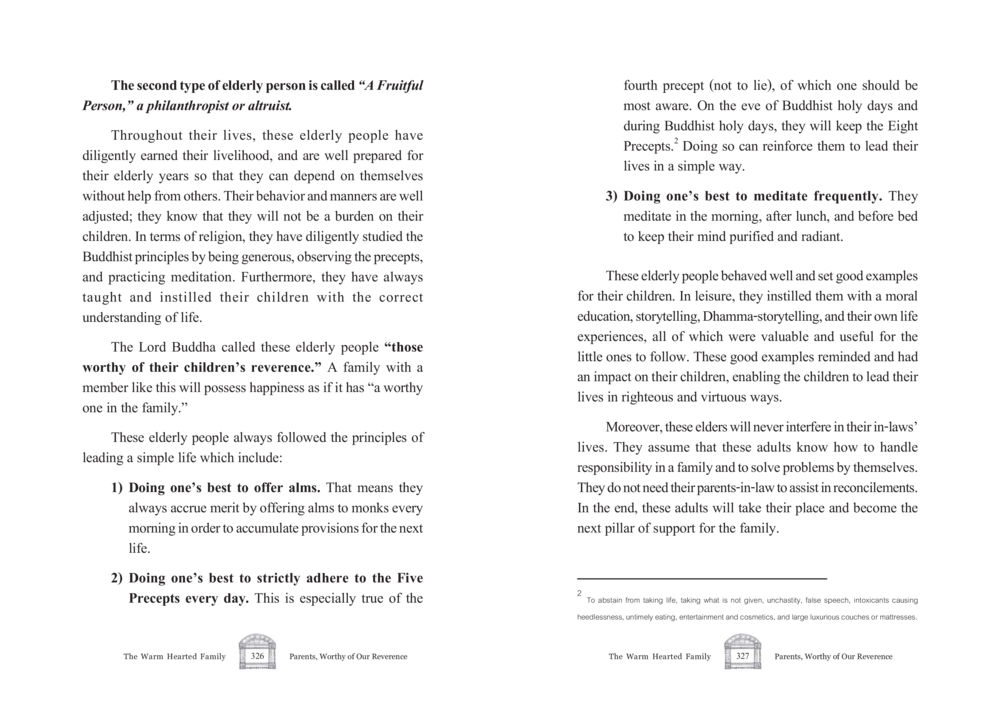Understanding the Fruitful Elderly: A Guide to Altruism and Wisdom : หน้า 164/207
The Warm Hearted Family : หน้า 164/207 Explore the characteristics of 'Fruitful Persons' among the elderly. Learn about their lives of philanthropy, responsible living, and moral teachings.
0 ครั้ง

สรุปเนื้อหา
The second type of elderly individual, termed 'A Fruitful Person', exemplifies philanthropy and self-sufficiency. These individuals have not only prepared well for their later years but have also engaged deeply with Buddhist principles, practicing generosity and meditation. They instill moral values in their children and lead lives of simplicity. Notably, they adhere to the Five Precepts and contribute to merit-making through almsgiving. Their role in the family is revered, as they become a source of happiness and wisdom. Such elders do not interfere with their children's lives, allowing them to manage their responsibilities, thus fostering independence. Their teachings and examples guide the younger generation towards virtuous living, ensuring they grow up with a strong moral compass. By embodying these principles, 'Fruitful Persons' create a supportive family dynamic and continue to influence generations positively. For more insights, visit dmc.tv.
หัวข้อประเด็น
- Characteristics of Fruitful Elderly
- Importance of Philanthropy
- Buddhist Principles in Elderly Life
- The Role of Elders in Family
- Moral Teachings for Children
ข้อความต้นฉบับในหน้า
หน้าหนังสือทั้งหมด















































































































































































































